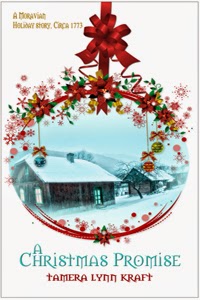I want to introduce you to Cindy and hope you find her post as inspiring as I have. Be sure to watch for her debut novel Secrets and Charades coming out March, 2017. We're planning to have her visit with an interview closer to her book release date!
Enjoy!
Lapping the Couch to Meet Writing Goals
Enjoy!
Lapping the Couch to Meet Writing Goals
By Cindy Ervin Huff ”
"No matter how slow you go, you're still lapping everyone sitting on the couch."
--Diane Flegal, Hartline Literary Agent
--Diane Flegal, Hartline Literary Agent
I found this quote in a recent blog post by Diane Flegal. It resonates with me. I am often comparing myself to
those who publish gobs of stuff throughout the year and those who are making the big bucks for their novels. I sit on my couch and vegetate, setting my mental goals to reach their awesome writing heights. Then I whine and complain when I’m still miles from that goal with each passing year.
Turn around and see how far you’ve come.
But when I turn around I see I’ve come miles from where I was ten years ago. Even with bumps and potholes that have derailed me for seasons of time, I am still on the path to the finish line of being a multi-published author.
Each year I grow my blog, publish a few more articles or short stories. And I write more than I ever bother to submit. Last year I wrote my second novel. This year my debut novel is heading toward publication. Look for my historical Secrets and Charades in March 2017. This year I am writing a sequel amid meeting publisher’s deadlines for marketing prep for S & C and editing my contemporary novel. I still have high goals. My to-do-list gets way too long and life events take precedence over some of those writing goals. And I still beat myself up for not doing more.
Miles ahead of the moaners
Over the years I’ve met people who want to write a book. They moan about the if-onlys and the some-days. And you know what? I am miles ahead of them. Rather than complain about the moments I don’t have, I grab the ones I do to write. I am on course even if the wind dies down and I am dead in the water due to unavoidable life dramas. And with aging parents there is a lot of drama. Makes couch sitting more inviting.
However, I’m in the water heading toward the island of multi-published authors. Who knows, if I keep pressing forward I might become a best-selling author or even an author who is being read hundreds of years after my death. (sweet!)
Look at your own files. It matters not if they are published pieces. How is your journey? Are you lapping the couch in your writing goals? What projects could you finish staying away from naysayers? How about not comparing yourself to others? Are you grabbing moments to write? Is the path to your computer worn more than the path to your couch?
As for me and my writing
If I sit down with the moaners and naysayers who quit when stuff gets hard, I’ll never get one fraction of an inch closer to the finish line than I am today. I battle my urges to be a couch potato when it comes to achieving my writing goals, sometimes the couch wins out and I binge watch something on TV. Then I rally and grab my PC. I will not watch others pass me and wallow in jealousy. No, I’m lapping the couch and it feels pretty good.
ABOUT CINDY:
Cindy Huff is a multi-published freelance writer and president of the Aurora Illinois chapter of Word Weavers who loves to bring her imaginary characters to life. Her debut novel, Secrets and Charades will be available March 2017. When she is not writing articles, editing posts or talking with her imaginary friends, she cares for her aging parents, helps with her grandchildren and binge reads. Her main goal and passion is to encourage other writers in their journey and believers as they grow in faith. Check out her blog Writer's Patchwork at https://jubileewriter.wordpress.com/author/jubileewriter/
Connect with her:
www.facebook.com/cindyehuff
Twitter: https://twitter.com/CindyErvinHuff
Goodreads: https://www.goodreads.com/user/show/8029703-cindy-huff
Contact her for guest blogs or speaking engagements at
cindyshuff@comcast.net
Thanks for joining us, Cindy.
Blessings, Readers!


.jpg)


















